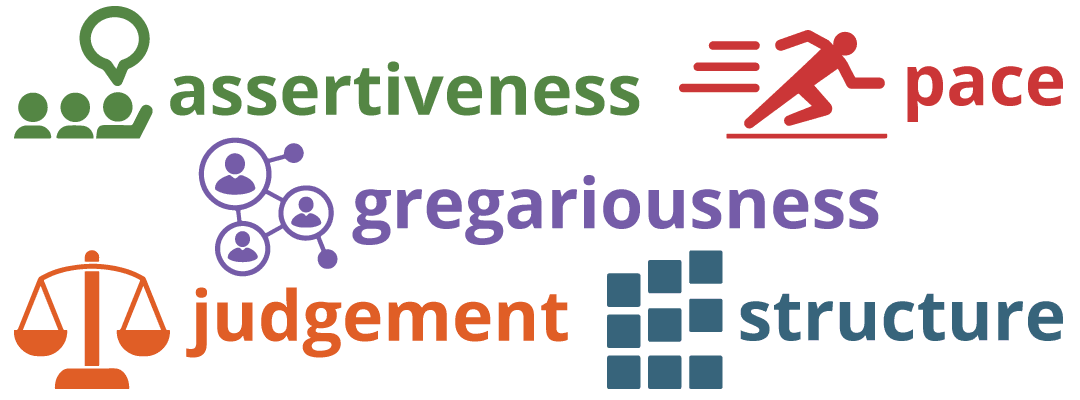Hiring any new employee is stressful, time-consuming, and, sometimes, exhausting. Regardless of the research level that goes into finding a particular person, there are always many unknowns about their successes and shortcomings before they report to work on their first day. Every hiring manager or even the HR department has made hiring mistakes. Reducing hiring issues is the name of the game now. To further narrow down an applicant pool, consider exploring the world of employee personality testing. Get to know the basics of this tool so that the next hire will be a success.
1. Exploring an Applicant’s Motivations
Every person who joins a company is contributing to its success or failure. Some people are largely optimistic, whereas others work with a sense of skepticism each day. Personality tests give you insight into a person’s inherent motivations and work preferences. These traits are essentially seen every day on the job.
These personality tests go deep; they don’t reveal temporary feelings or emotions. Everyone has a bad day. The information you need is the personality traits that will reflect on the company once the new hire steps aboard.
2. Understanding the Core Traits
The personality traits that are explored in The Omnia Assessment include:
-
- Assertiveness
Being highly assertive means that an applicant can drive results through others; great for sales and leadership positions. Falling low in assertiveness (high in caution/helpfulness) is great for customer service.
-
- Structure
The structure involves the level of organization, compliance, and attention to detail in a person’s day. Some people focus on the big picture, while others are meticulous with procedures and details.
-
- Gregariousness
Gregariousness is a measurement of a person’s outgoing personality. Some people are more social than others, for example.
-
- Pace
Pace refers to a person’s tendency to work urgently or methodically.
-
- Judgment
Judgment focuses on a person’s ability to think through the consequences of their actions and decisions.
3. Matching the Applicant to the Job
Your job opening attracts a lot of potential hires. In fact, you might have more than one position to fill. A personality test for employment helps you narrow down those selections.
Consider a person who is cautious, detailed, and analytical on the test. These quiet individuals may not be right for the sales position, but your data-analysis department can use a focused person.
Finding the right match within your company saves time and effort for HR, the manager, and even the new hire. Your new employee will be much happier in a position that draws on his or her strengths rather than skills that don’t match the personality.
4. Taking Everything into Consideration
Remember that a single test can’t reveal everything about a person. It’s a tool to use alongside other methods. Continue to interview individuals according to a consistent process, but use the tests to narrow down the applicant pool.
It’s still a good idea to use your gut instinct with applicants as you get down to the last few people. Take a look at the tests, and observe the personality traits yourself. At the end of the day, you and the entire staff must welcome the person into the corporate culture.
Also Popular: Behavioral Assessments Can Reduce Employee Turnover
5. Saving on Hiring Costs
Advertising, interviewing, and researching potential candidates for your company’s positions are expensive. It becomes an even larger expense when a new hire ends up being terminated during the probationary period. You’re back to square one.
6. Developing the Current Staff
Is your current staff in a rut? Where is the motivation? Every company goes through its ups and downs. Finding the answers to these questions can be found through employee personality testing. Some of the insights that you gain may include details such as:
- Where to focus on training and development
- How to manage job tasks that do not align with aptitudes
- What communication style works best for the individual
Once you reveal each of your employees’ needs and preferences, changes and improvements are easier to make than ever before.
An assessment test for employment reduces costs during the hiring process and beyond because you have a stronger chance of hiring right the first time. You’ll select the perfect candidate for the position and your culture.
7. Choosing the Right Test
There are a lot of tests out there; HR and hiring managers are often saturated with advertisements. Toss out the clutter that is abstract testing. Some personality assessments come with games and shapes to solve or arrange. But, they don’t offer much information about your potential new hires’ intrinsic motivators and work preferences.
The Omnia Assessment is a simple yet amazingly accurate personality assessment tool to identify candidates and employees’ workplace aptitudes. It’s fast, just 10 minutes, and it’s easy, with no confusing questions or irrelevant multiple choice scenarios. You get real-world advice on how to select and manage the best fit for your team.
Join The Omnia Group today to elevate your team and hiring processes.
























